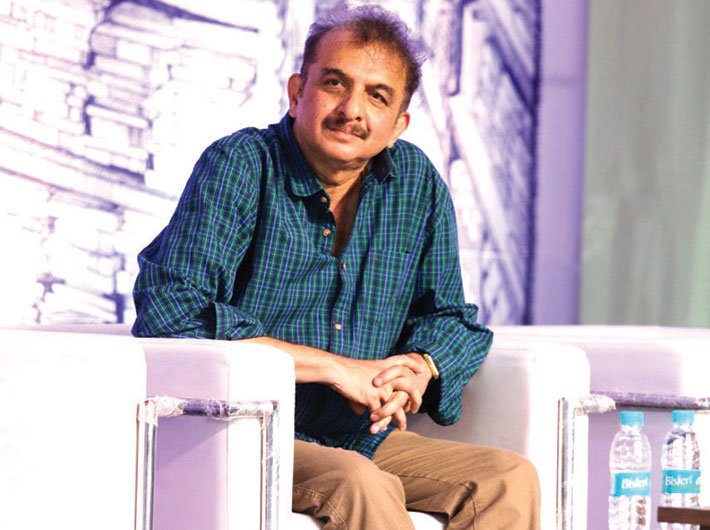Jayant Kaikini was recently honoured with the Atta Galatta-BLF Prize and Lifetime Achievement Award Kannada for 2018. Born in Gokarna in Karnataka, Kaikini is one of the prominent young writers in Kannada.
Jayant Kaikini was recently honoured with the Atta Galatta-BLF Prize and Lifetime Achievement Award Kannada for 2018. Born in Gokarna in Karnataka, Kaikini is one of the prominent young writers in Kannada. He is also a poet, playwright and lyricist and received the Filmfare Award for the best lyricist in 2009.
Your first Karnataka Sahitya Akademi award was when you were 19. Tell us about your literary journey.
It is good to have chicken pox early in life so that your immunity builds up! So getting an award early was good for me. It reassured me and I felt free to write the way I was writing. Coming from a small seaside temple town of Gokarna…my childhood was full of exotic sounds and faces. When I moved to bigger towns, homesickness and trauma of shift from Kannada medium to English medium pushed me to find solace in reading, writing and extracurricular activities. Hiding under literature I found a new me!
What does writing mean to you?
It is an absorbing and liberating journey. It is like learning to swim and crossing the river simultaneously. Yashwant Chittal, a Kannada writer, said, “I don’t write what I know. I write to know.” It applies to people like me too.
Your father was a well known writer, did he inspire you?
My father Gourish Kaikini was a radical humanist. He taught in a school but was a teacher to the society through his writings. He wrote about everything he thought was essential for a man to evolve as a better being – be it music, theatre, aesthetics, science, literature. He wrote in Kannada, Marathi and Sanskrit. He was the first to write about Marxism in Kannada. I didn’t read him much then but I am deeply influenced by his passion for life.
You have a masters in biochemistry. How has science influenced your outlook?
Science and art are not separate. Literature and medical science have much in common. Both try to understand human pain and turmoil and try to reduce it. Written poetry is like electrocardiogram of a society and time. The artificial division of arts and science in education is unfair and has created havoc.
After experimenting with other formats, do you plan to write a novel?
I am a restless soul and always in a hurry to share what I have attempted. Novel writing requires a lot of discipline, patience and inner calm to stay with your characters and situations for a long period without sharing it with anyone. It is my dream to pen a novel.
You have translated a lot of plays and essays. Can translations capture the essence of the original?
Translations done by me are more adaptations than literal translations. I call them ‘roopantar’, not ‘anuvaad’. The translator has to be a good writer in the language in which he is translating. Translation is a thankless virtue.
Your views on preserving the heritage of regional languages?
We must ask ourselves whether we want our heritage to be a ‘garden’ or a ‘museum.’ Museums are dusty, gloomy and frozen whereas gardens bloom and breathe. I think we must make gardens of our heritage by making it more friendly and sensitive in its expression to the new generation. Museums are scary. Children don’t like them.
Mumbai has inspired many writers in different ways. How do you look at this unique city?
Mumbai is an amazing, liberating space. It has a non-judgmental collective mind of its own. This non-fussy city speaks in a language which is a leveler. It never uses respective plural. It uses ‘tere ko’ and ‘mere ko’ across the levels. An autowalla returns the exact change even at midnight. Due to space constraints Mumbai by default celebrates minimalistic living, which is actually spiritual, i.e., no space to hide or show off. Only Mumbai allows my characters, situations or images to be what they are.
Your advice for good writing
Get lost… let your story or poem find you.
(The personal note appears in November 30, 2018 edition)

